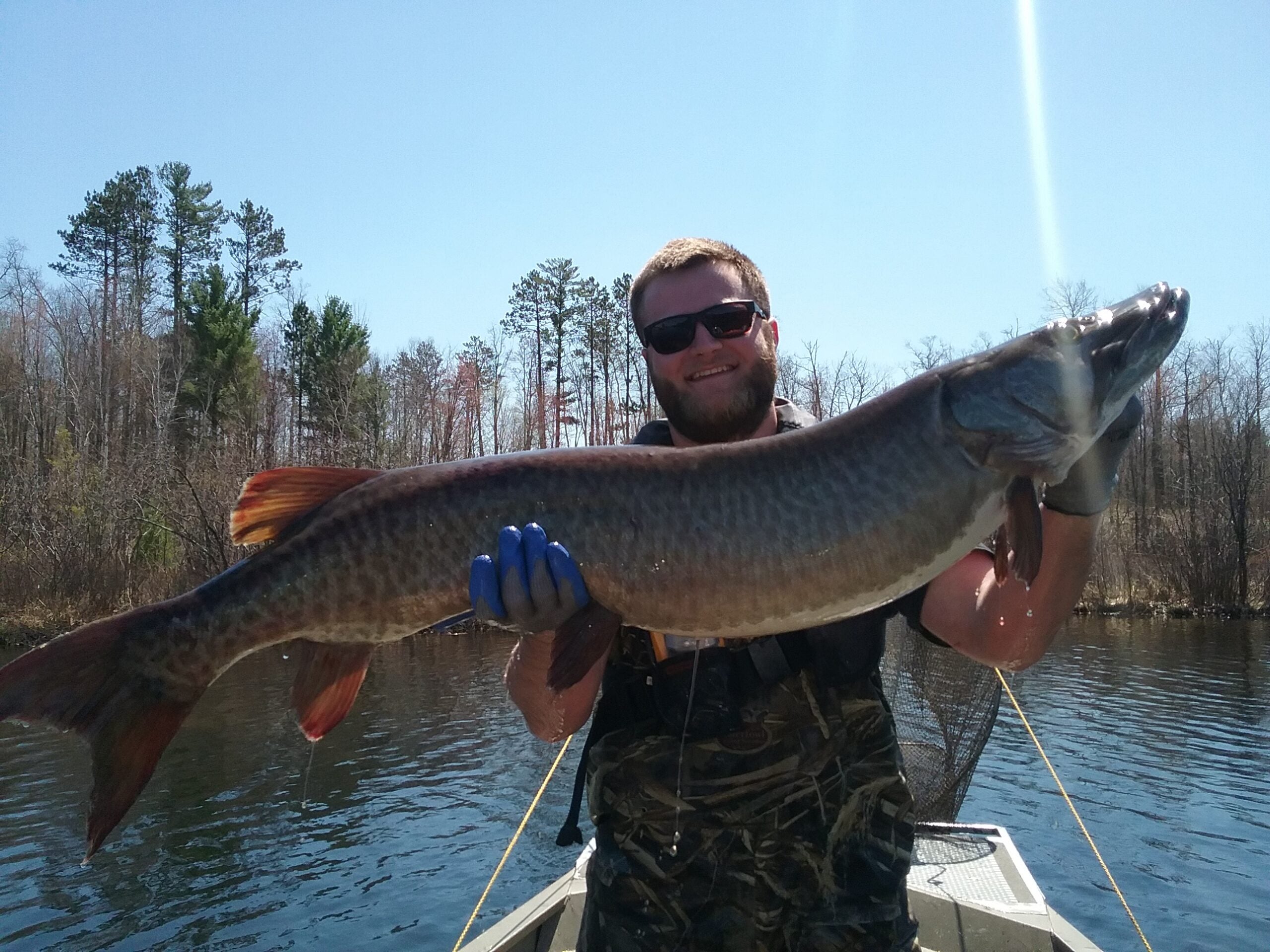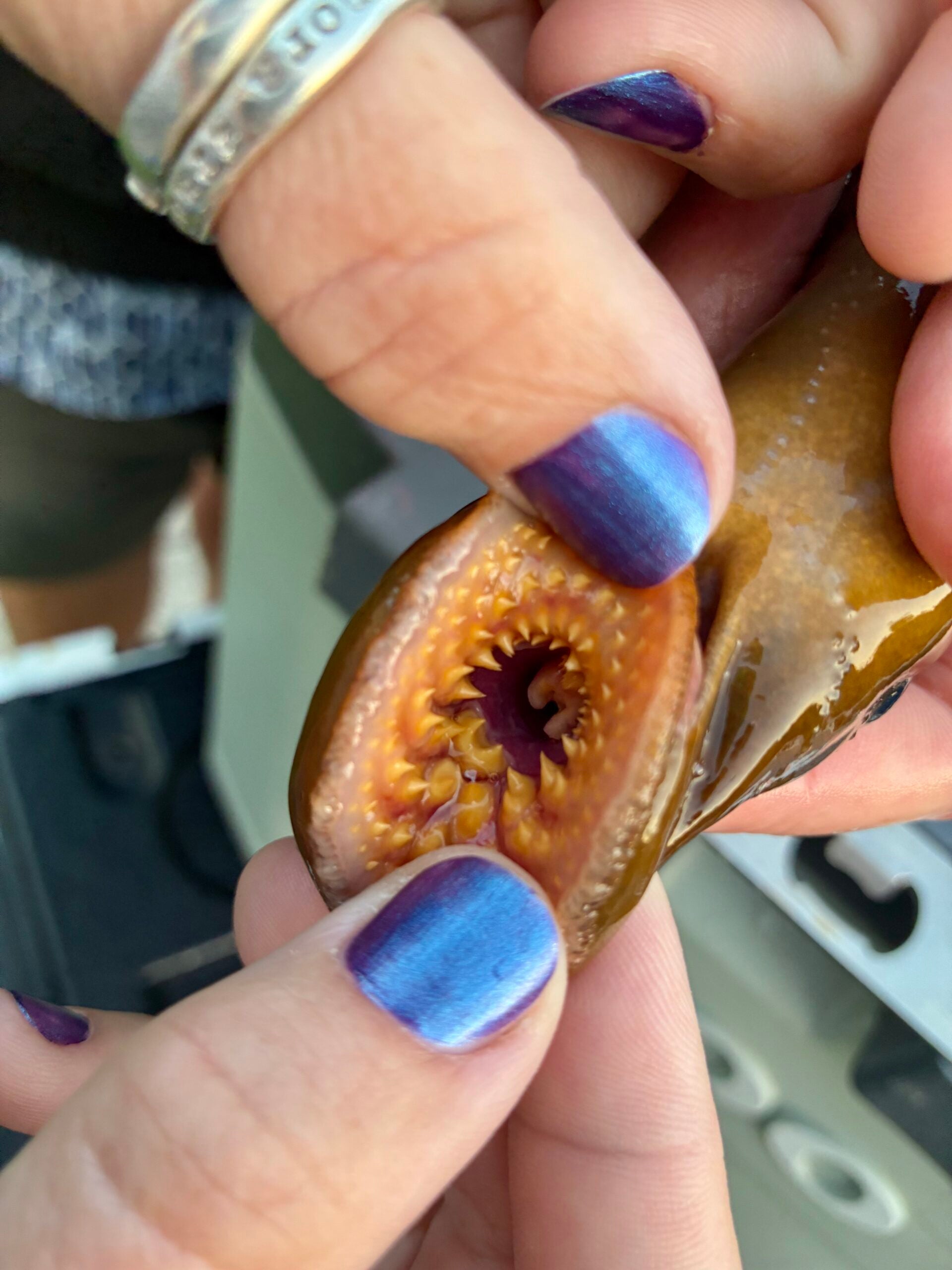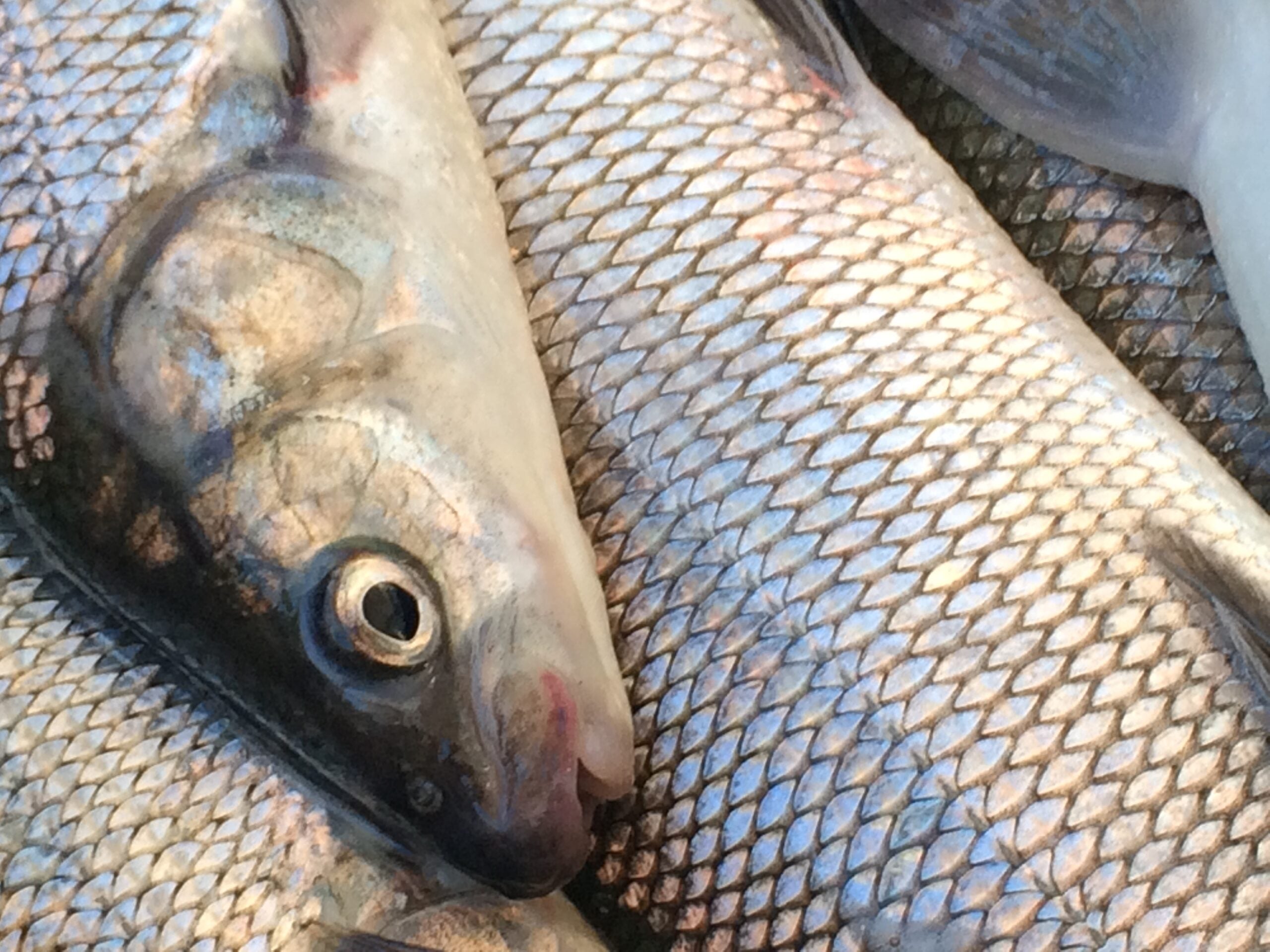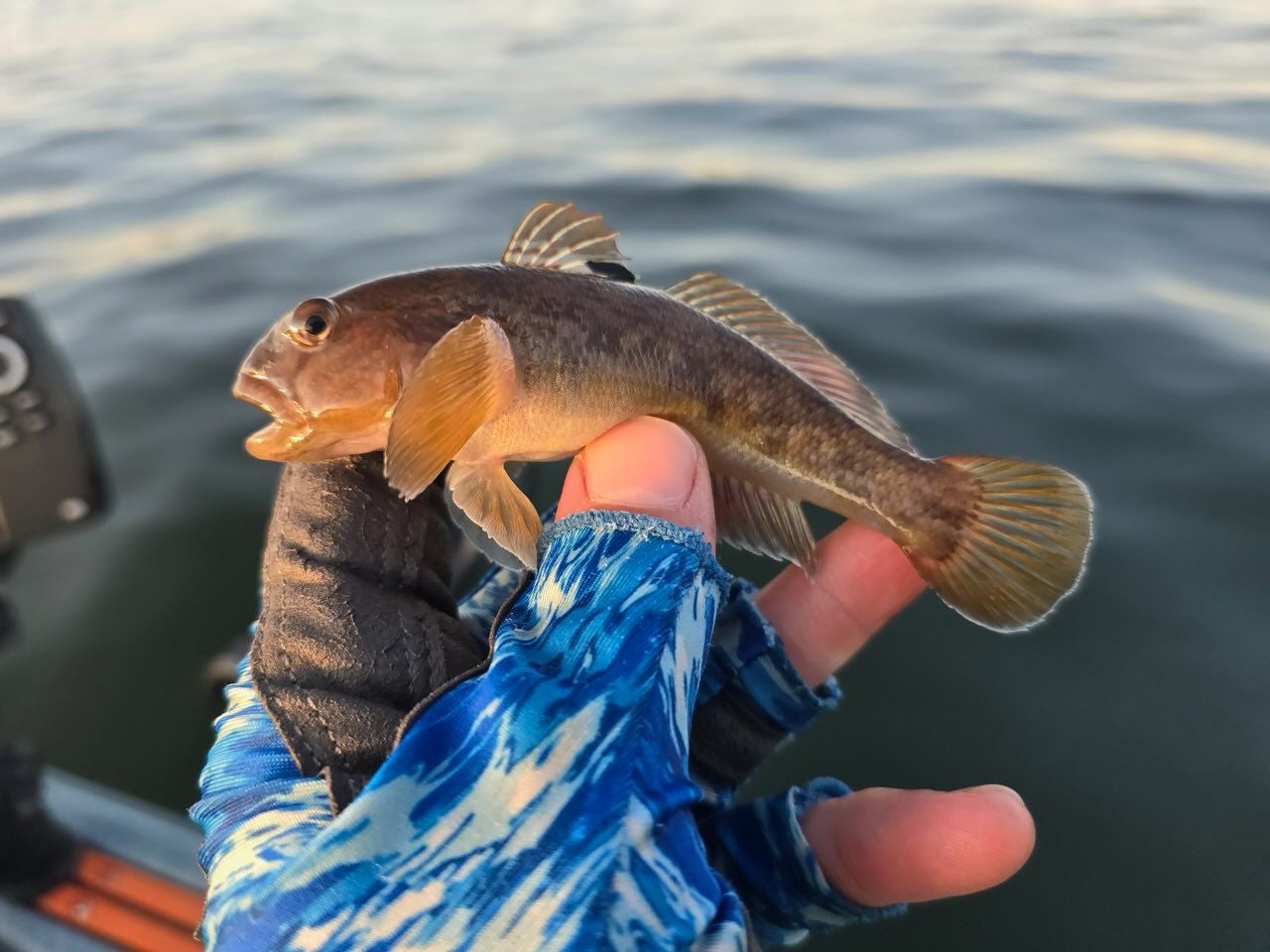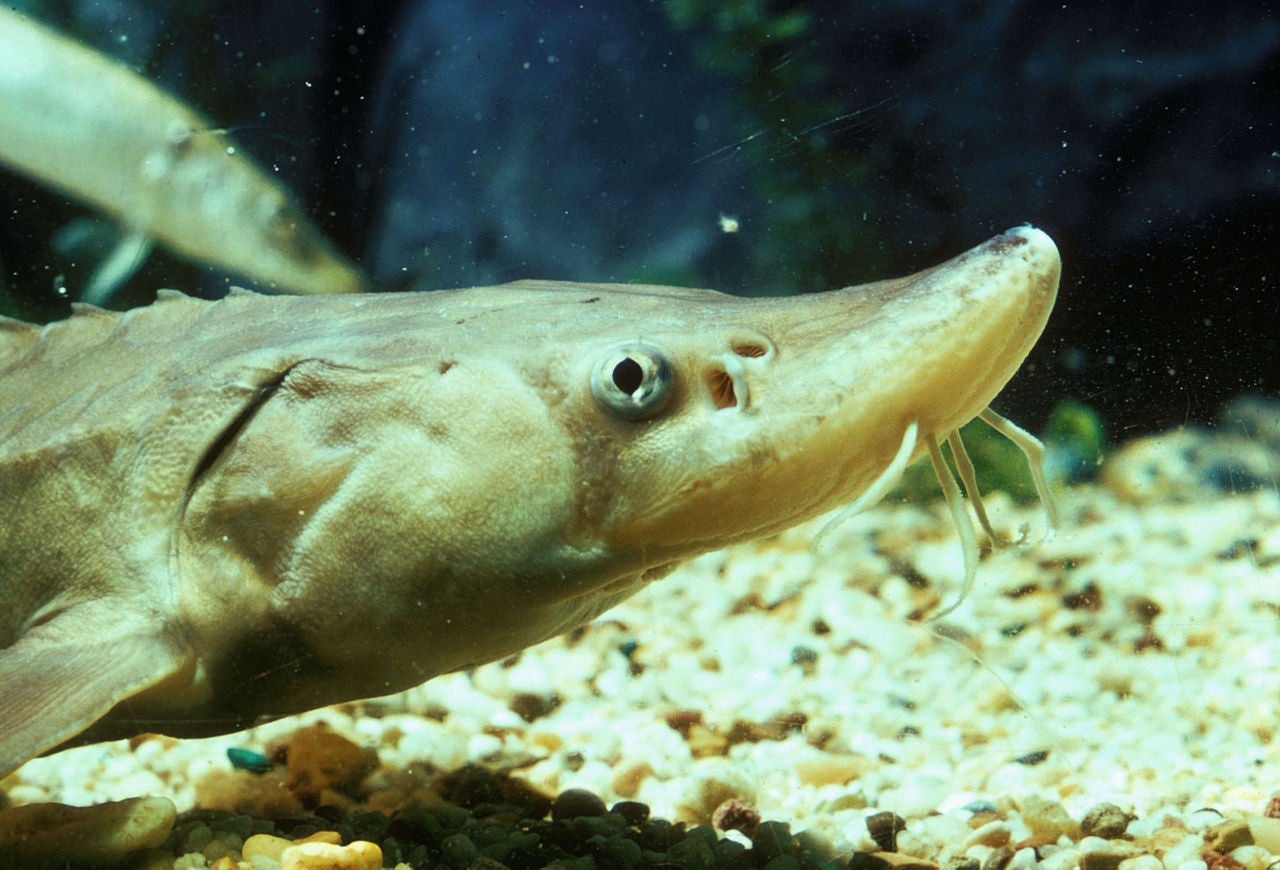Wisconsin anglers kicked off muskellunge season last weekend, and a Green Bay sport fishing guide has noticed a boost in the musky population. He credited that change to a 17-year effort to clean up the lower Fox River.
The state Department of Natural Resources and other federal and local groups removed 6.5 million cubic yards of contaminated sediment through hydraulic dredging over the yearslong project, according to the DNR.
The project workers also installed caps over 275 acres of riverbed to contain polychlorinated biphenyl. In all, the project helped restore about 10 billion gallons of river water.
News with a little more humanity
WPR’s “Wisconsin Today” newsletter keeps you connected to the state you love without feeling overwhelmed. No paywall. No agenda. No corporate filter.
Now, Bret Alexander told WPR’s “Wisconsin Today” he’s seeing big benefits to the musky population.
“We’ve got more muskies in the system in the last 20 years than I’ve ever seen before,” he said. “After that cleanup project, I’m seeing a lot of natural reproduction going on with the muskies. … I’m definitely seeing dividends now on that whole program.”
Alexander explained that when fish are stocked in Green Bay and the Fox River, someone clips their pectoral fins. He said he’s recently seen a lot of smaller fish without those clips, meaning they’re a product of natural reproduction.
On “Wisconsin Today,” Alexander also shared his thoughts on musky fishing opening weekend and how muskies are handling climate change and invasive species.
The following was edited for brevity and clarity.
Kate Archer Kent: How was the first weekend of musky fishing?
Bret Alexander: The weekend was good. We had a lot of rain, but the fishing was pretty decent. We are about three weeks ahead of schedule with where the muskies normally are. Normally, they’re in all the tributary rivers. They’re still doing their spawning. They’re pretty easy to target. Because of the warm temperatures and the mild winter, our temperatures are quite a bit higher in the system here on Green Bay. So the fish are going into their early summer patterns already.

KAK: The Wisconsin State Climatology Office says this winter was the warmest on record for our state. You mentioned being ahead of schedule. How are warming temperatures affecting the muskies?
BA: It definitely put them (muskies) into their spawning period a lot earlier this year than normal, which is actually good. … A lot of times people target them in the areas where they’re spawning. I don’t think that’s a good thing. When the fish are spawning, I think they should be left alone. Let them do their thing and reproduce. I always wish that the season would open about a week or two later just because of that fact. When they’re in shallow spawning, they’re easy to target, and we’re disrupting them.
KAK: You talked about the cleanup efforts. What effects are invasive species having on musky fishing?
BA: The main effect (with invasive) carp would be depleting food sources. You have to be careful with that. But muskies are pretty much your apex predator. There’s not much that is going to disturb them besides if something disturbs the food chain by eating the food that muskies eat. With invasive species, it’s definitely something you want to keep an eye on.
KAK: What about invasive aquatic plants and blue-green algae? Has that been a problem at all?
BA: I haven’t seen an issue on Green Bay. But I’ve heard of other bodies of water where they have had some pretty major issues with that. Our main things on Green Bay were the zebra mussels, and I don’t think the zebra mussels were actually that bad of a thing for Green Bay. It cleaned up our water a lot because zebra mussels filter.
The gobies were a big thing. Everybody was worried about the gobies. I think the gobies were actually a great thing for the Great Lakes because (they) provided a huge food source.
KAK: How is fishing for musky different from other species?
BA: First of all, you need a lot of patience because it’s not a fish where you’re going to go out and catch a lot of them every day. I always tell people if we can put two or three fish in the boat in an eight-hour day, that’s a pretty good day of musky fishing. So, it’s a lot of work. But it’s one of the most exciting things that will happen in a boat as far as fishing goes in fresh water. It’s very explosive.
Muskies feed a lot on the moon phase, so you have to know your lunar calendars and watch the different moon phases each day. A lot of days you’ll see where, all of a sudden, they’ll fire for 10-15-minute periods when they feed. It’s all based on that lunar moon phase.
KAK: That must be really exhilarating to see that come together.
BA: It definitely puts goosebumps on your arms. That’s for sure.
Wisconsin Public Radio, © Copyright 2025, Board of Regents of the University of Wisconsin System and Wisconsin Educational Communications Board.

